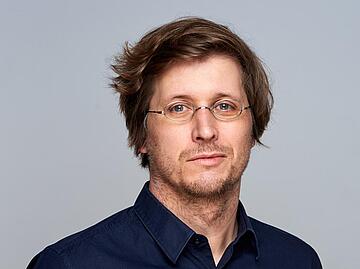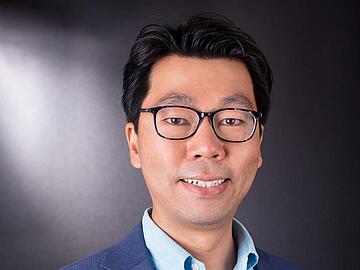Global China Conversations #43
Industrial Policies: Do Chinese Industrial Policies Work, and What Are the Domestic and International Implications?
Topic
Driven by strategic planning, generous subsidies, and long-term visions like “Made in China 2025,” China’s industrial policy has significantly reshaped global manufacturing—from high-tech exports to green energy supply chains. Yet crucial questions remain: How effectively do these policies foster productivity growth and structural transformation within China? What distortions or inefficiencies do they create in domestic markets? And how do these strategies reverberate across international trade systems, supply chains, and geopolitical alignments? One particularly revealing case is the battery supply chain in the automotive sector, which offers key insights into raw-material sourcing, production scale, and the dependencies that are increasingly shaping Europe’s green industrial transformation. These dynamics raise broader concerns for Europe, as China’s industrial strategy increasingly challenges the EU’s industrial autonomy, climate goals, and geopolitical resilience.
Program
The event consists of different impulse lectures followed by a discussion.
The Global China Conversation #43 will be held in English.
Speakers

Moritz Schularick
Moritz Schularick is president of the Kiel Institute for the World Economy since June 2023 and Professor of Economics at Sciences Po (Paris). His research includes financial markets and asset prices, issues in monetary macroeconomics, and the causes of financial crises and economic inequality.
Prior to his appointment in Kiel, Moritz Schularick was Professor of Macroeconomics at the University of Bonn, Director of the MacroFinance Lab there. He is also a Fellow of the DFG-Excellence Cluster ECONtribute and a full member of the Berlin-Brandenburg Academy of Sciences and Academia Europea. Previously, he conducted research at New York University, the University of Cambridge, Freie Universität Berlin, and in the research department of the Federal Reserve Bank of New York, among others.
He is a recipient of the 2022 Leibniz Prize, Germany's most prestigious research prize, awarded by the German Research Foundation (DFG). In 2018, he received the Gossen Prize of the Verein für Socialpolitik, the most prestigious award given to German economists. He is editor of the most important European journal for economic policy, "Economic Policy."
He regularly advises central banks, ministries of finance, investors, and international organizations.

Sabrina Schulz
Dr. Sabrina Schulz is the Germany Director of the European Initiative for Energy Security (EIES), a think tank and advocacy organisation working on energy, resource and supply chain security. She is also an Associate Fellow with the German Council on Foreign Relations (DGAP) as well as an Adjunct Professor at Hertie School.
She started her professional career in the climate field as a climate diplomat with the UK Foreign and Commonwealth Office. She is also the founding director of the Berlin office of E3G Third Generation Environmentalism; served as Head of the Berlin office at KfW; worked as the Executive Director of the Sustainable Development Solutions Network Germany; and was a Co-CEO at a ClimateTech and renewable energy start-up.

Heiwai Tang
Heiwai Tang is Victor and William Fung Professor in Economics, Director of the Asia Global Institute and HKU APEC Study Center, as well as Hong Kong Institute of Economics and Business Strategy at the University of Hong Kong (HKU). Prior to joining HKU, he was tenured Associate Professor of International Economics at the School of Advanced International Studies (SAIS) of Johns Hopkins University. He is also affiliated with the Federal Reserve Bank of Dallas (U.S.), the Center of Economic Studies and Ifo Institute (CESIfo, Germany), the Kiel Institute for the World Economy (Germany) and the Globalization and Economic Policy Center (U.K.) as a research fellow. He has been a consultant to the World Bank, the International Finance Corporation, the United Nations, and the Asian Development Bank; and held visiting positions at the IMF, Stanford, MIT, Harvard. He is currently an associate editor of the Journal of International Economics, the Journal of Comparative Economics and the China Economic Review. Since 2021, he has served on a number of public bodies, including the Currency Board Sub-Committee of the HKMA’s Exchange Fund Advisory Committee and the Minimum Wage Commission in Hong Kong. Heiwai holds a Ph.D. in economics from MIT and a Bachelor of Science in mathematics from UCLA. His research interests span a wide range of theoretical and empirical topics in international trade, with a specific focus on production networks, global value chains, and China. His research has been published in leading journals in economics, including American Economic Review and Journal of International Economics. His research and opinions have been covered by BBC, Financial Times, New York Times, Al Jazeera, Foreign Policy, South China Morning Post, and various think tanks such as the Brookings Institution and the Peterson Institute for International Economics.
Moderation

Julia Fiedler
Julia Fiedler is Senior Editor China at Table.Briefings. She studied Regional Studies East Asia with a focus on China and Chinese legal culture in Cologne and studied and worked in Kunming and Beijing. She has been part of the China.Table team since 2022 and focuses on business and the automotive industry. Previously, Julia Fiedler worked at the Axel Springer publishing house and as a TV journalist, including at n-tv.
